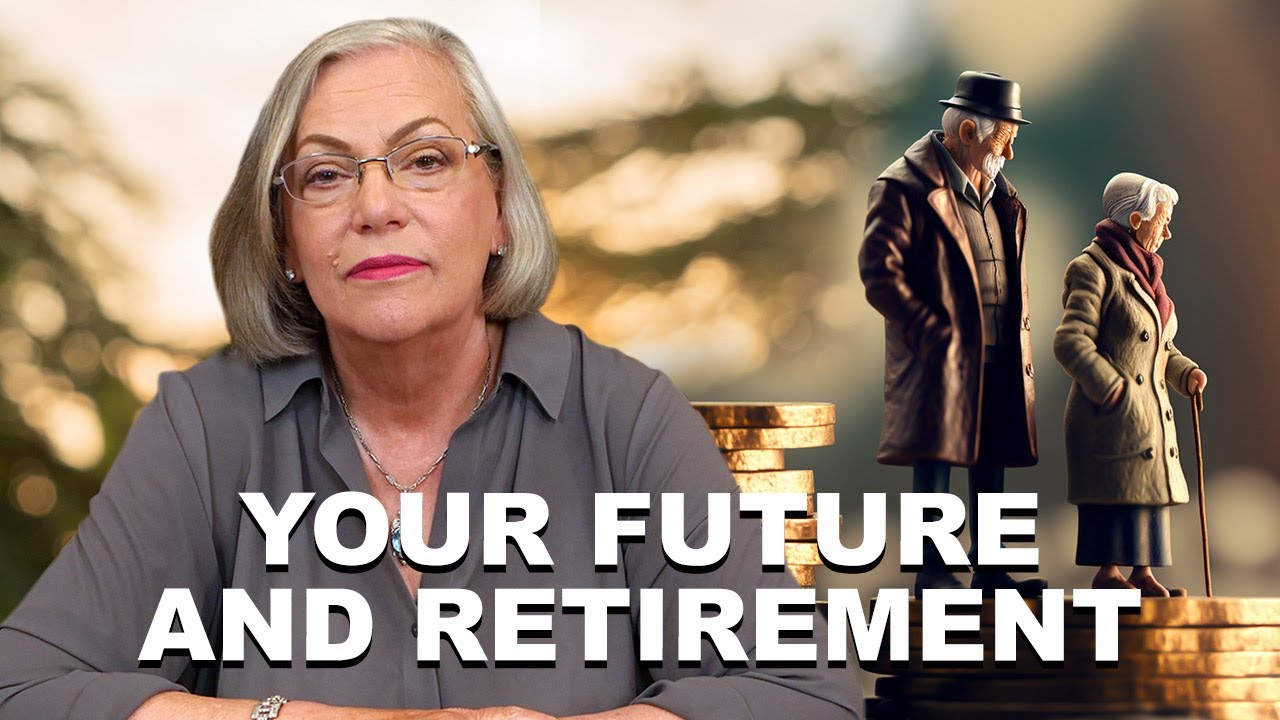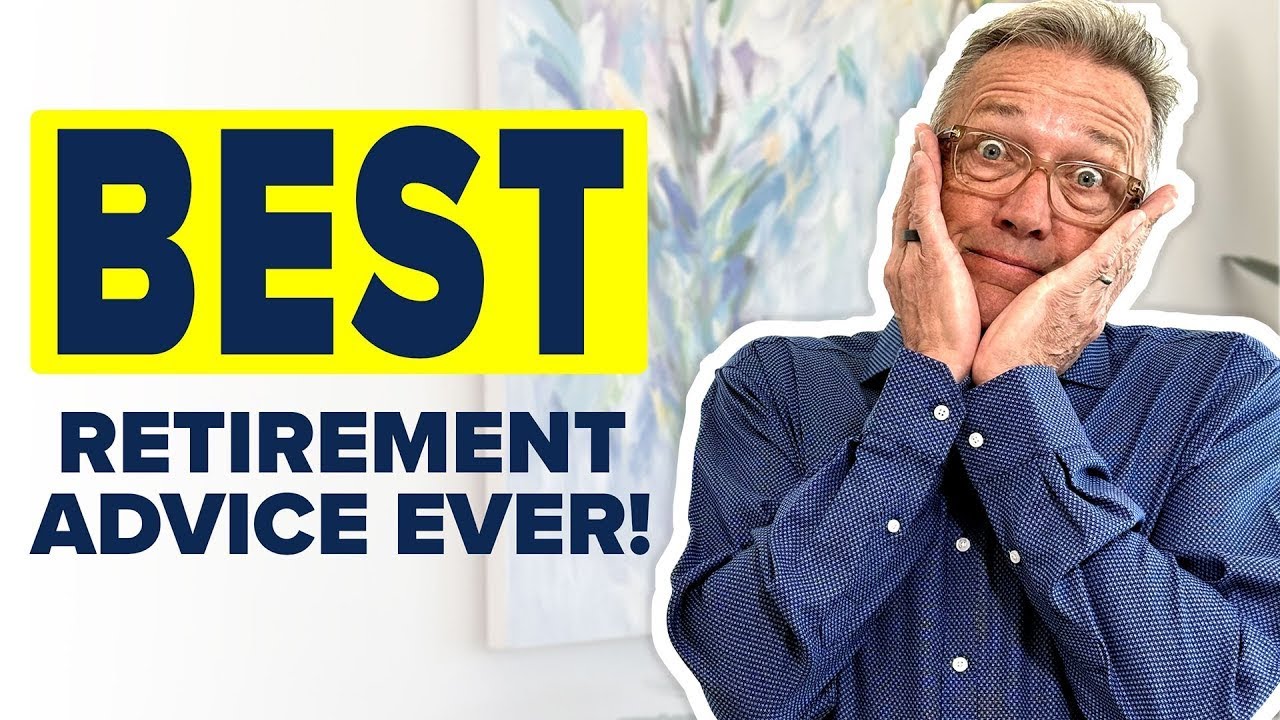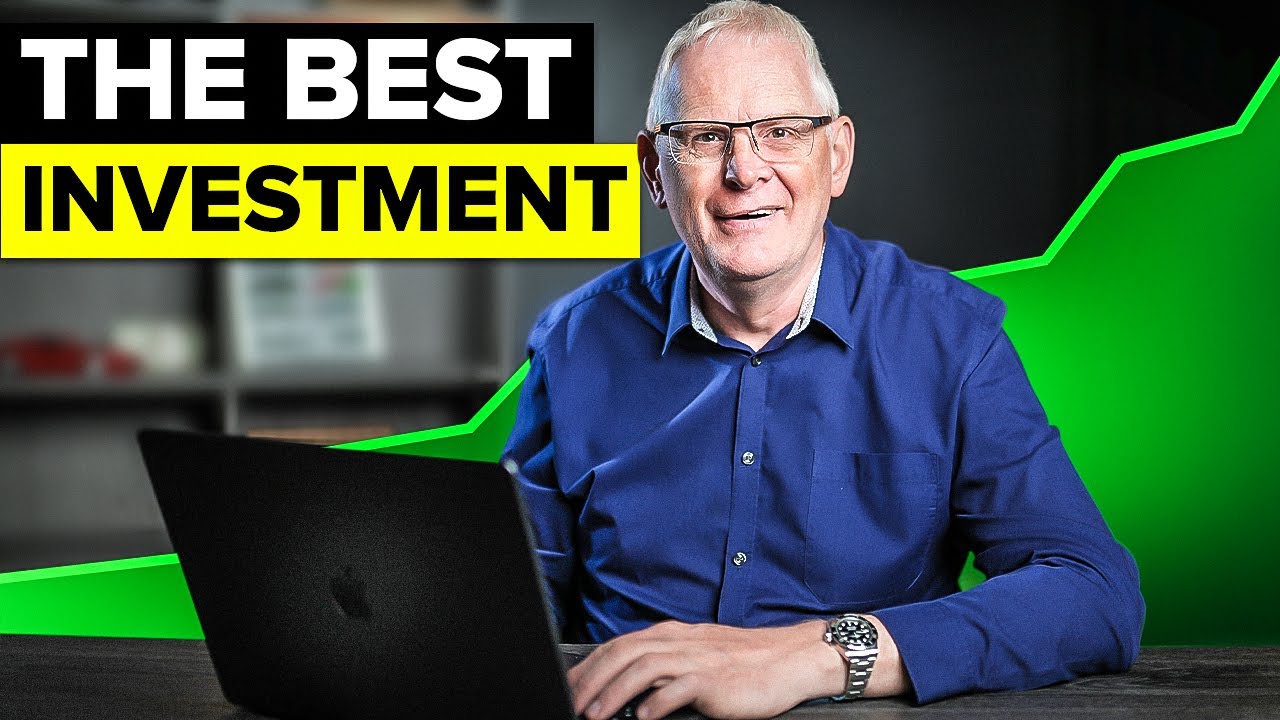
This Is How To Become A Millionaire: Index Fund Investing for Beginners
Jason 0 Comments Retire Wealthy Retirement Planning
hi guys it's mark so did you know if you save two hundred dollars per month at an eight percent annual return then in 45 years you would have over wait for it one million dollars to be honest when someone first explained this was possible by investing in index funds i hardly understood a word they were saying it was like they would speak in a different language today i thought it was about time that i made the video that i wish i'd seen when i was younger and explain everything step by step and because i like people that actually practice what they preach i'm gonna be investing ten thousand dollars of my own money during this video so you can see exactly how it's done just a quick disclaimer though i'm not a financial advisor i'm a businessman and this is just some of the real life strategies that have worked for me personally i always thought of index funds as my backup plan if my businesses hadn't been successful then i would have become a millionaire anyway through these investments just remember if you like the video then smash the like button as it really helps push this video out to more people and also consider subscribing if you want to grow your wealth part one uncovering the lies so let's cut to the chase you've been put a major disadvantage people have been telling you lies about investing all of your life for instance at school when i was growing up i remember asking my teachers about investing and they always said it's just for rich people as they can afford to hire professionals to do it for them for the longest time i believed investing wasn't for me because i wasn't a pro and i didn't have much money and i thought i wouldn't stand a chance then we got friends one of mine said i'd have to look at all the financial newspapers learn how to read the charts and according to him it just wasn't worth my time and on top of this every time i mentioned investing to my family they seemed so scared because they thought it's the most risky thing in the world and not for normal people my dad even said if i started investing i'd lose all my money can you believe that these lies are exactly what the experts want you to believe as they know that index fund investing is extremely easy to do you don't need much money to start the risks are pretty low and on average it will make you more money in the long term the dark truth is that the average actively managed fund returns two percent less a year than the market in general this means that professionals on average are doing worse than index funds and even if they end up losing you money they still charge you fees no matter what now according to my favorite film the matrix you have now taken the red pill and you've woken up to the truth it's now time to move on to part two understanding the game i know when i first started investing i felt like i was going to make so many mistakes but once you understand their language it all becomes so much easier and that's what we're going to be talking about in this part so i've been banging on about index funds in many of my videos so i think it's about time i explained what they are and why they're so cool i'm a big football fan and if you have ever followed any sports you'll be familiar with a league table like this the better your team performs the higher up they'll be on the list but on the other hand if they do really badly they might be removed from the league entirely this is almost exactly the same as an index all you have to do is switch out the teams for companies let's take the s p 500 for example this is a list of the 500 best performing public companies in the usa the big dogs being amazon google apple and more recently tesla and just like a league table if a company doesn't perform well they're at risk of being removed from the list hasta la vista baby the idea of an index fund is to be a little bit sneaky as it allows you to invest in every single company on the list with just one click it's a bit like a friend of mine who picks a different football team each year he just wants to pick the winner every time so investing in index funds means that even if a few companies do terribly then it's balanced out by the companies that are doing extremely well the average return on the s p 500 over the last 10 years has been 13.6 now that is higher than usual but get this no one has ever lost any money if they've bought and held an s p 500 index fund for more than 20 years so if this is so foolproof then why do people still buy individual stocks well personally i like to do this just for a bit of fun i also think that some companies are currently working on awesome technology for the future but aren't making a lot of money at the moment so they won't make the cut into the popular index funds so now and again i like to invest some extra money into these up and coming companies so i don't miss out and that reminds me we bought currently giving away four free individual stocks if you want to pick them up i'll leave the link in the description and for everyone that's outside of the usa or china i'll leave a link where you can claim a free stock with trade in 212.

Hey that's pretty good you'll often hear people throwing around the terms roth ira in the usa stocks and shares isa in the uk tfsa in canada and supers in australia but what does it all mean well these are types of accounts that allow you to earn profits on your investments and you don't have to pay any taxes on them but they generally have limits because they're just so powerful these are kind of like captain america shield so let me explain if captain america just sat at home with his shield then he wouldn't ever get anything done but when he takes that shield into battle he has an advantage so these accounts are like your shield make sure to use them when you're investing a way you can do this is by using the money inside your shielded account to invest into index funds and all the profits will be yours because the government won't take a cut one of my biggest questions when i first started was should i invest all my money at the same time or do it gradually now this is something lots of investors argue about so i'm going to give you my view on things remember later i'm going to be investing this 10 000 in full so that kind of gives you an idea of what i believe investing all your money as a lump sum is certainly more risky however if i'm investing in something i know will increase over time like an s p 500 index fund then there is no point waiting the longer you wait the worse off on average you'll be however if you don't have the cash i wouldn't wait to save up the money i would just invest what i could every month as sometimes you're going to buy when the stocks high other times you're going to buy when the stock's low but overall this is going to balance out and this is known as dollar cost averaging when you log on to an investing website or app you'll see that there is something called etfs which are very similar to index funds and a lot of people get them confused both allow you to invest into a basket of stocks however the easy way to remember the difference is just to think of what etf stands for exchange traded fund if we break that down simply it just means that it can be traded on the stock market throughout the day whereas an index fund can only be bought and sold for a price that is set at the end of each trading day but let's cut to the chase you probably want to know which one's better on average if you're starting with little money then etfs may be a better option as they have lower minimum investment thresholds and many brokers don't charge a trading commission now if you're still watching this and you're younger than 18 then i am really impressed that you've been listening to a boomer like me for so long but seriously not many people learn this at such a young age as they don't teach it at school a way you can start investing under 18 is to open up a custodial account in the usa or a junior stocks and shares iso in the uk set up these accounts you just need to ask your parents the real secret ingredient to this millionaire formula is time and when you're younger you have so much of it that's because every year as you keep adding to your investments the interest starts to compound and grow at a rapid pace it's a snowball effect once you reach a certain tipping point the interest you're making is much more than the amount you're investing on a monthly basis it's a bit like when you see someone take ages to get to a hundred thousand subscribers on youtube and then within a few months they managed to hit the big million the sooner you get started the better as time will be on your side now i want to clear something up when people talk about index funds you will hear s p 500 again and again people just love it as i mentioned before this is a top 500 public companies in the usa but the cool thing is you don't actually have to be in the usa to invest in this i'm in the uk and it's one of my favorite investments i just love to think that i own a small part of all the biggest companies in the usa part three mastering the strategy so lots of people will teach you what to do but they won't actually say how to do it so i'm going to walk you through everything right now while i invest my own ten thousand dollars the first thing to really do is to work out your goals let's say you want to become a millionaire that was one of my goals i just had to work out how much i would actually need to invest per month to achieve this i love using these compound interest calculators you can find them online easily yourself if you want to have a go at this so if you're able to invest 250 dollars per month with an 8 annual return over 42 years you'll have over a million dollars in your account now if you're able to invest that for another 10 years you'll have over 2 million in your account of course if you wanted to invest even more then you're just going to speed up the whole process the next thing we need to do is pick the brokerage website we're using to set up our account and invest the ones that i love are charles swab fidelity and vanguard i call these the big three the founder of vanguard john bogle is often referred to as the father of index fund investing and if you think i'm a boomer he was even older than me his vanguard group gave birth to index funds so they're the oldest and most trusted let's jump onto their website to see what they have to offer so to get onto their full list of funds just go up to invest in and click on vanguard mutual funds at this point i'm going to have to ask you to strap in and brace yourself because if you haven't seen this page before it can look extremely overwhelming but in a minute you'll be able to impress all your friends when you know exactly how to read it see what i mean there are just so many options the main things to focus on are the expense ratio which is how much they're going to charge you per year you obviously want to keep these as low as possible and luckily with vanguard fees these are very low anyway the other thing to look at is the average returns and they break these down nicely on the right hand side of the screen but of course it's always good to remember that past performance doesn't always mean future returns my wife's a bit like vanguard she likes everything in order and nothing out of place so they have arranged all of their funds into different categories so everything is easy to find category one is bonds these are a type of contract that companies and governments sell when they need extra money if you invest in these they promise to pay you back in the future these are often seen as pretty low risk but also pretty low returns therefore the older you are the more bonds you should have in your portfolio number two is balance funds the idea of these is to pick the age at which you wish to retire and they'll do all the rest of the work for you and find the right mix of index funds as you can see these go up in five year intervals and you can pick whichever suits your plans best this could be a good option if you wanted to invest without thinking about it too much but personally i always prefer manually investing it's a bit like driving an automatic car that does all the work for you it just isn't as much fun as a stick shift number three is company location and size known as small medium and large cap here you can find v fix which tracks our old friend the s p 500 this little s means it's one of vanguard selected funds which they recommend if you click on it you're able to see exactly what companies you would be investing in and also the risk level vt sacs is another good one which is a total stock market index fund which has over 3586 different stocks this allows you to invest in the entire usa stock market in one click there is a minimum investment of three thousand dollars again but as before there's also an etf version with no minimum called vti then you have international stocks quite a cool one is emerging markets which invest in companies based in china taiwan india and many more but as you can see this is a five on the risk scale so i wouldn't personally invest a lot of money into this fund because look at me i'm a bit old to be taking too many risk and i need to sleep at night number four the last category is sector based so if you have a particular interest in energy healthcare or real estate you can invest into these sectors and there are also a lot more options for sector investing in the etf so now we've broken down what's on offer hopefully it all looks a bit more understandable now for the moment you've all been waiting for it's time to invest my ten thousand dollars i could split this between lots of different funds but personally i like to invest the majority of my money into american companies i would say probably about seventy percent american 20 in other countries including the uk and ten percent in some bonds i like to keep the bonds quite low as i don't mind this little extra bit of risk because i'm only 53 and i have a bit of time before i've got to rebalance my portfolio to secure my investments but that's a personal choice depending on your risk tolerance the funds that are available are different in every country but the indexes they track are very similar so you may need to invest in a different fund to me but obviously you can still use my percentages as a guide so i'm going to use the uk vanguard site to invest 5k straight into this etf that tracks the s p 500 so here we go all done two thousand dollars is going into an index fund that tracks the total american stock market so again we go on the screen click so far that's 70 invested in the biggest economy in the world which of course is the usa now i like to balance this out by investing in a different economy as i live back in my own country i'm going to be putting 2k into the ftse 100 index fund so looking good all done great now i've invested 90 of my 10k and i'd like a bit of security let's just put the remaining 1k into a global bonds index fund and let's just do that so just like that i've invested in the usa companies like apple amazon tesla and google i own a small piece of the biggest companies in the uk like hsbc bp and unilever and i have some bonds to balance out my portfolio it really is as easy as that so i'm going to leave the next video up here but don't click on it just yet remember to subscribe to the channel if you want to grow your wealth ring that notification bell and smash that like button okay i'll see you on the other side
As found on YouTubeRead More
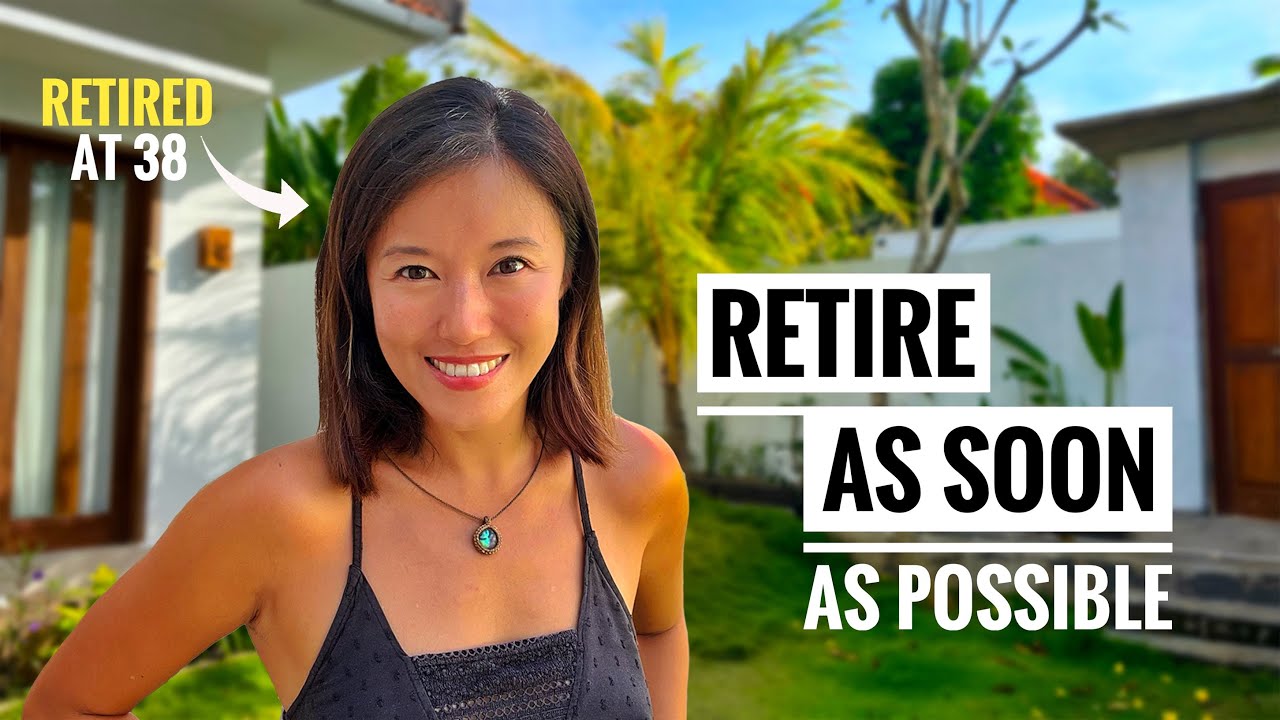
Retired at 38: 5 strong reasons to retire as soon as you can (Retirement Planning)
Jason 0 Comments Retire Wealthy Retirement Planning Tips for Retiree's
so early retirement has actually improved our health so much that I actually think we'll be avoiding higher health care costs down the line that may actually lead into our retirement funds and then early retirement has also allowed us to achieve a state of intuitive living which has been absolutely awesome financially the conventional wisdom is that early retirement could potentially be disastrous but frankly I think so far two years into retirement that our early retirement has been great for us financially these plus two or three more are just some of the very strong reasons why I would Advocate that anyone considering retirement should do so as early as possible let me explain why down below hey I'm Jean and for the past two years I've been retired in Bali Indonesia with my husband today I wanted to discuss about all these reasons why I think retiring as early as you can is a brilliant idea [Music] so Health basically don't wait till it's too late I think that when most people think about health and retirement planning they just kind of hope and assume that they will be in good health when they enter retirement and then that they pray it remains status quo until the end but I guess most of us pre-retirement might be involved in jobs that might be high stress with long hours at the desk and then naturally Fitness just isn't what ideally it should be so all my life I've been struggling with skin rashes and allergies and these issues tend to pop up every time my immunity gets low because I'm stressed I'm tired I'm taxed but truly in the two years since we have been retired the manifestation of all these problems have just gone down so much in retirement mode I'm happily keeping very fit doing all the things that I know of like surfing walking the dog with the hubby eating better overall probably further down the line maybe I might be avoiding higher healthcare costs having this health is actually so much wealth it allows you to live life to the fullest because frankly all the stuff that you want to do in your enjoyment of Life probably involves a lot of Health you want to travel you want to scale that mountain at Sunrise to see that incredible view you need your help even just to enjoy good food if you like us you like to eat you need your health I mean I know so many people who have dietary restrictions because of high cholesterol or diabetes improving health is actually one of the biggest and strongest reasons why you should retire early so the second big reason for wanting to retire ASAP is actually intuitive living basically intuitive living is really connecting with yourself and listening to your garden stings and your feelings as to stuff like eating and rest and meditation relationships even your spending habits perhaps I don't know how it is for you guys but I was generally living my life governed by a lot of shirts right I mean I should be at the office by 9am so that I won't piss off the bosses I should stay in the office stay late and postpone my workout postpone dinner so I can meet the deadline set by my clients I should carry branded Handbags and of course I should be a corporate lawyer I mean why would I want to be anything else right finally in retirement we are free from the demands of the pursuit of money to listen to ourselves to truly tune in and understand what is the optimum cause in life you can chart you really want to wake up every day without an alarm clock naturally because you've had enough sleep you want to eat only enough and not too much I mean you want to make better choices food wise intuitive exercise you know you're doing what really only appeals to you maybe you don't like sweating in the afternoons so then you know get a gym membership or play indoor record Sports whatever works for you I only wish that more people have the opportunity to experience living life this way intuitively away from the entanglements and distractions from regular running the hands the real life the third reason why you might want to retire as soon as possibly is just that the earlier you retire the more time you gain in life I mean if you think about it most of us live life as though we are invincible as if life itself will never run out and therefore we do things like squander our time or sell it away too cheaply in exchange for material things we each only have so long to live right and the money you make in your lifetime you can't bring that with you when you go home so well might as well you'll be the one to spend it when you can right Society feeds us like so many different narratives about success and what it should look like but actually I think success is really not about the achievements per se but it's just really a Feeling and I like to think that at the end of our Lives when we're there in our last dying moments what we'll be thinking about probably wouldn't be like stuff like oh I closed that three billion dollar deal I think it would more be along the lines of like I had good friends and I loved my family I had a good life you know I ate good food I laughed Lots I took care of my kids and my dog stuff like that so don't squander the time that we each have maybe you have personal goals that you really want to achieve stuff like learning Spanish or scaling the Great Wall of China or just watching your kids grow up that's just a million places that are better to spend your time at then at a job which you don't really particularly care for and which maybe you're just doing just cause that's what everyone else is before we move on a big thank you to skillshare for sponsoring this video so skillshare is an online learning community with thousands of classes for anyone who loves learning if 2023 is the year you promised yourself you're gonna finally explore new career or side hustle options or work on personal growth then skillshare is the perfect place to start for me one of the ways we have fun in our retirement is making YouTube videos when we first started skillshare was instrumental in teaching us so many of the basics like videography storytelling and more till today one of the best classes I ever sat through online anywhere is still the class by Sorel Amore YouTube success build an authentic Channel that's worth the follow so her advice about finding my Niche valuing authenticity over Beauty creating meaningful messages and providing value to the audience really changed our perspectives on what we were creating back then for the better of course we've gone from like 40 Subs to the 143 000 Subs of today and from time to time I still pull up sorel's worksheet when I'm creating my videos just to check that I'm on track for making something good for our people our audience it's always super easy to take whatever you learn on skillshare and apply it directly to your life Pursuits whatever those may be I highly recommend checking out skillshare and if you want to do that you can use my link in the description below the first 1000 people will get one month of skillshare absolutely free you can try it out learn something new move a step closer to your 2023 goals reason number four the earlier you start your retirement the better you'll get at it with every other change in life we expect that we all need time to learn how to do it well so things like becoming apparent for the first time even if like us it's just a fur kid or transitioning from being a student to being a working adult and then there's the transition from being and actively working adult to retirement mode it seems ridiculous and silly even at first I mean it's like saying who doesn't know how to spend their free time right but if you actually truly observe things around you retirement Falls really differently for different people we all know the people who have retired and in their retirement seem a little lost lonely left behind and uninspired and then there's the other kind of retired people right the ones who go like when we're talking that I'm gonna grab Life by the balls and Max things out a big part of that may actually be the point in life at which you retire whether at that point where you retire you still have your zest your Zeal your energy your health your Fitness to help you max out the happiness potential of that free time and freedom in retirement and then there's the thought that retirement supposed to stretch out for a few good years at least right if not for a few decades and doing that requires skills you know you need so many different skills to have a successful retirement I think that's a topic for another day but basically you need time to learn those skills whether it's Financial money management or social skills you know building relationships and stuff but basically you need time to get all that down pat in order to have a successful retirement so then the earlier you retire the better usually you will probably turn out for you so the last and possibly the most controversial point I think that early retirement could possibly be great for you financially and this is controversial because it's directly opposite to what a lot of the experts say right you retire too early there's so much risk that you miscalculate your finances or that world events take an unexpected turn and then you know things go belly up and then you're destitute in your last years but I mean underlying all that seems to be this assumption that in retirement we're all just going to be like one dead lazy log and I think that these days especially if you're an early retiree that is just so not true maybe like us with YouTube in our retirement in your own retirement maybe you'll learn new skills pick up new side hustles and stay busy doing something that you're doing for the love of it for the fun not for the money but having the money come in as a result of your side hustle is a nice bonus and you know what it becomes an additional buffer for your later years so retiring early also allows you to take advantage of things like dual Arbitrage Right Moving overseas to improve your financial situation and yeah so like us I'm from Singapore but I'm now retired here in Bali Indonesia we're not just here because life is more affordable but the fact is that our retirement sums in fact our whole entire retirement is only possible because living here is so much more affordable as compared to back home you know this wouldn't be possible at all if we retiredly and ended up having health concerns right mobility issues for example retiring early and then using the time to keep up with current affairs learning hedging strategies to minimize risk learning how to diversify our Investment Portfolio I feel that the time in our retirement has been well spent to actually make us more resilient and the fact that we retired so early also means that if anything goes badly up time and youth are on our side if our financial planning for retirement had just sucked or you know things unexpectedly go failure so prepare you know if we have to U-turn and go back to work or maybe start another business it's not a big deal and then we'll go off Marshall the resources that we lack and then we'll come back again and second time around third time around will definitely be better each time at doing this so in terms of confidence and the feeling of resilience that we will be able to make this last all the way I think that starting early doing it early diving into it and understanding the parameters the potential the boundaries of what we face in retirement actually really really helps well guys so these are the few takeaways from our last two years living in retirement here in Bali and I mean if you have any thoughts or objections or contributions to the points that I've made in this video I'll love to hear them let's start a little discussion in the comments below you guys have a good week ahead wherever you are and let's chat again next Saturday thank you for watching and bye-bye have a good weekend

As found on YouTubeRead More

Do You Pay Taxes On Gold And Silver IRA?
Jason 0 Comments Retire Wealthy Why Gold IRA
do you pay taxes on gold and silver Ira with a Roth gold and silver Ira your contributions are post-tax meaning you'll pay taxes on the money before depositing it into your IRA account this tax model is different from a traditional IRA which taxes the money upon withdrawal is there capital gains on gold IRA the IRS classifies precious metals such as gold as capital assets and treats them as Collectibles therefore regardless of their forms they are subject to capital gains tax if they are sold after more than one year after purchase what are the current gold Ira tax rules updated for 2022 when you cash out your investment from a gold Ira then you will pay taxes on your gains shortly afterward gold IRAs face additional fees and taxes this includes paying a 10 fee if you withdraw early does the tax code permit you to use self-directed gold Ira accounts While most Ires consist of traditional assets such as stocks and bonds the tax code permits you to use self-directed Ira accounts that allow you to hold precious metals such as gold and silver what are the gold Ira tax rules what are the tax rules for gold IRA what are the tax rules applicable for gold IRA as with other retirement accounts if you take gold out of your IRA before turning 59 and a half you will have to pay income tax on the value of the gold plus a 10 early withdrawal penalty which Ira do you not pay taxes on a traditional IRA is a way to save for retirement that gives you tax advantages generally amounts in your traditional IRA including earnings and gains are not taxed until you take a distribution withdrawal from your IRA at what age do you not have to pay taxes on an IRA age 59 and a half only Roth IRAs offer tax-free withdrawals the income tax was paid when the money was deposited if you withdraw money before age 59 and a half you will have to pay income tax and even a 10 penalty unless you qualify for an exception or are withdrawing Roth contributions but not Roth earnings for a comparison of the best gold Ira company's visit https colon slash slash www.goldira401convesting.com gold Ira company slash click Link in the description below

As found on YouTubeRead More
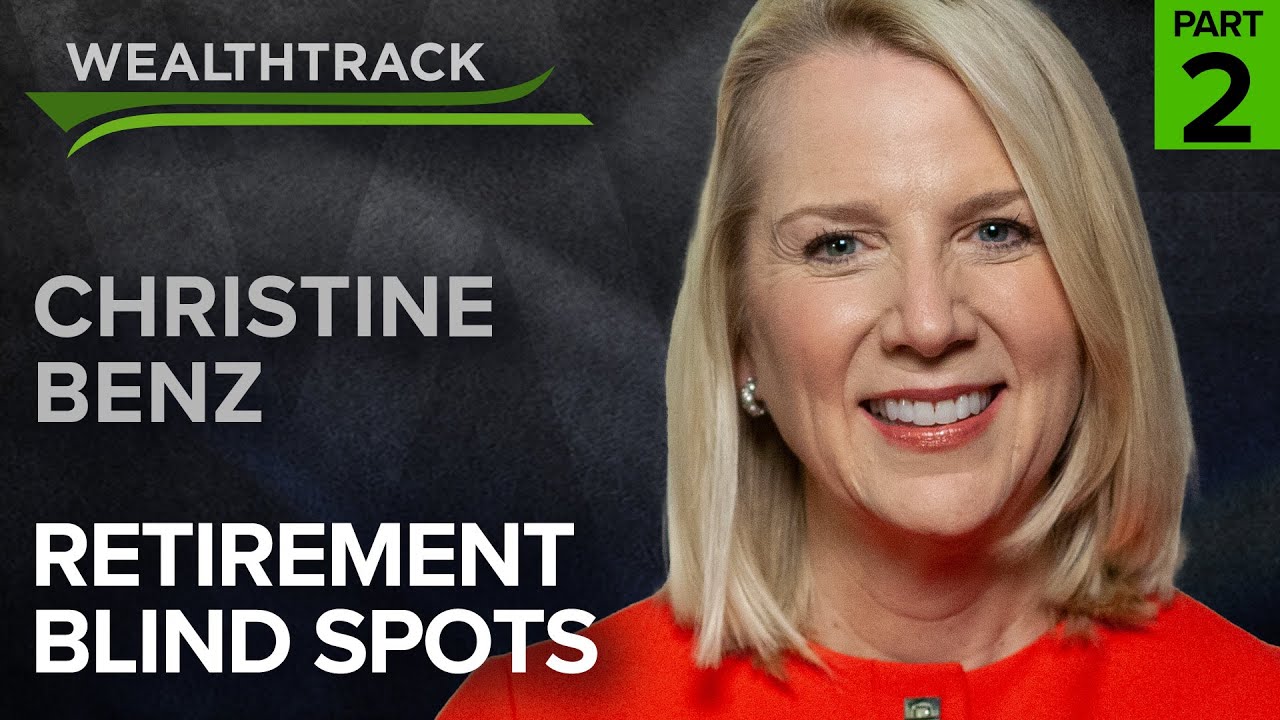
Retirement Planning: Strategies for a Secure Future
Jason 0 Comments Retire Wealthy Retirement Planning Tips for Retiree's
Even if it's my goal to continue working longer, what would I do for healthcare, for example, if for some reason I'm not able to continue working until I'm Medicare eligible? What is a safe withdrawal rate for me from my investment portfolio if I need to retire earlier than I expected to? Morningstar's Personal Finance Guru joins us for part two of our Building and Better retirement series on Consuelo Mack WEALTHTRACK. Announcer: Funding provided by ClearBridge Investments, First Eagle Investments, Royce Investment Partners, Baird, Matthews Asia, Strategas Asset Management and Women Investing in Security and Education. Mack: Hello and welcome to this edition of WEALTHTRACK. I'm Consuelo Mack. There are few tasks more fraught with financial challenges and anxiety than planning for retirement and replacing a work paycheck with one from savings, ostensibly to last a lifetime. It's especially daunting against the backdrop of 2022's broad-based market decline and the new era of higher inflation, rising interest rates and the threat of recession. This week's guest describes herself as being passionate about simplifying retirement portfolio planning. Amen to that! She is Christine Benz, Morningstar's widely followed and admired Director of Personal Finance, a position she has held since 2008.
She is here for the second of our two-part series on Building a Better Retirement. If you missed the first installment, you can see it on wealthtrack.com. Well, this week Benz is discussing retirement blind spots. She has identified six of them and she's going to help us fix them. The retirement blind spots are: retirement date risk, sequence-of-return risk, low-yield risk, inflation risk, health care / long-term care risk and longevity risk. She certainly ticked all of my boxes. Now, how to mitigate those risks and what steps to take to solve them. I asked Benz to address them one by one, starting with retirement date risk. How big a problem is it? Benz: Well, this is simply that we tend to not be great judges of when we might retire. So there was a survey that Pew Research did several years ago where they asked pre-retirees approximately when they thought they might retire.
And one trend that you see in the data is that people tended to think that they would be able to work longer than they were actually able to work. So many people identified kind of in the period from 70 to 75 as the period when they thought they might hang it up. Well, in reality, when they tracked those same folks about their actual retirement dates, they found that people were not able to delay retirement that long. So the short answer is that we tend to not be great judges of when we might retire. And there are a few reasons why this is the case. One is the health situation, either our own health or our spouse's health or parental health may pull us out of the workforce. We know that ageism is a thing in our culture. We know that some folks who might have the intention of continuing to work may not be able to. They may have a job that's physically untenable to continue to do later in life.
So there are a lot of things that can complicate someone's plans to work longer, which is one reason why I get very nervous when I talk to older adults who say, Well, my plan is to continue working until I'm 70 or 75 or whatever it is. As Morningstar contributor Mark Miller often says, that's a worthy aspiration. It's not a plan. Mack: So how do you resolve that? Clearly you can't anticipate it unless you're self-employed, in which case you're the one who's going to fire yourself. So that's right. There are some people – or keep your business going, whatever it is. Benz: Well, it's tricky, but the key thing is that you need to stay flexible.
And I think for older adults, it's really valuable to kind of have a contingency plan in mind. Even if it's my goal to continue working longer, what would I do for health care, for example, if for some reason I'm not able to continue working until I'm Medicare eligible? What is a safe withdrawal rate for me from my investment portfolio if I need to retire earlier than I expected to? What would I draw upon if I needed to pull from my portfolio? Do I have safe liquid reserves that I could draw upon if I were shoved out of the workforce in a year like 2022 when stocks and bonds went down at the same time? So I think you want to kind of build up, build in that contingency plan.
And then also top of mind is have a backup plan for some other form of work and maybe it's consulting in your field that you've built your career in. Maybe it's a completely different career path. But if you can find some sort of paid remuneration to tide you over in those early retirement years, that can go a long way toward helping your plan last and helping ensure that you're not having to invade your portfolio when it's at a low ebb. Mack: In part one of this series on building a better, more resilient retirement plan, and you've certainly talked about how to handle that from an investment point of view. So I just want our audience to know that, and they can see that on wealthtrack.com. The next blind spot that you mentioned is sequence-of-return risk. So explain that. And it certainly is, you know, uppermost in our minds after what happened with the markets in 2022. Benz: Sequence-of-return risk is something that retirement researchers really worry about. And this is basically the odds that early on in your retirement, often when your portfolio is at its largest, you encounter a really bad market environment that either features dropping bond prices, falling stock prices, high inflation.
Well of course, we had all of that come into play in 2022. And so what retirement researchers really worry about is that a period like that stretches on for a period of 2 or 3 years or even longer. And if the retiree is simultaneously pulling too much from that portfolio that's dwindling, that is a very bad thing. And that can leave less, leave fewer assets in place to recover and heal themselves when the market eventually does. Mack: One of WealthTrack guests, Mark Cortazzo, who I know you know, is a financial planner, has given us two matching portfolios, equal amounts of money, but showed what happens if you retire in a down market like 2022 versus a market where the stocks and bond prices do really well afterwards.
And it can just be devastating in those first couple of years of what happens to you and how quickly you can run out of money. Benz: Well, that's absolutely true. And that's where we got the 4% guideline for safe withdrawal rates from, where William Bengen looked back over market history and tried to identify, well, what would have been the worst period in market history to have retired into. And he identified the period of the late 1960s to early 70s as the worst starting period in modern market history, because you had a convergence of bad events where you had the '73 '74 bear market for equities, which some of your viewers may remember, you had high inflation after that, and then rising interest rates to help curtail inflation.
And that, of course, clobbered bond prices during that period. So that's the period when researchers look back into history that they home in on as the type of environment when you want to be very, very careful. I think it's too soon to say whether we're sort of in a period like that. But coming into 2022, there were certainly a lot of storm clouds gathering for new retirees specifically that we had very low yields on fixed income and cash securities.
So there just wasn't much of a buffer for bond investors. When bond prices decline, they felt the full brunt of that price decline because there wasn't much of a yield there to cushion the losses. Mack: So, Christine, let's take that worst-case scenario that we are in a period where we could be going into like a lost decade or a period, as you just described in the 1970s, for instance, of high inflation, poor market results. What do we do? Benz: Well, I think two key things. So if you are accumulating assets for retirement, if you're not yet retired, don't worry about it. That this sort of environment is your friend accumulating assets at lower prices. But if you are someone who is just on the cusp of retirement or you've just retired, I would say that a couple of key strategies can come into play.
One is if you can find a way to reduce your withdrawals in those bad market years that redounds to the benefit of the sustainability of your plan. So if you can pull in your belt a little bit in those tough years, that's the first thing you can think about. And then the second thing you can think about is just make sure that you've built a portfolio that includes safe assets that you could spend from. If we go through a period where stocks go down and stay down and we have, say, another lost decade like we had in the early 2000s, the idea would be that you would build yourself kind of a runway of cash investments, perhaps short and intermediate term, high-quality bonds that you could effectively spend through rather than having to touch your depreciated equity assets. So those are the two things: curtail withdrawals if you possibly can, and also build a portfolio that includes safer assets that you could pull your withdrawals from.
Mack: You were talking about yields and one of the retirement blind spots that would have been operative a couple of years ago is the low-yield risk. Now that's changed. So how much of a risk are yields now? Benz: Well, it's gotten so much better. We had this war on savers going on for the past couple of decades, really, where we saw this steady drip drop downward in terms of the interest rates that you're able to earn on safe investments. The good news story of the very bad market environment we had in 2022 is that yields are much, much higher today on all manner of cash and fixed-income investments. So you don't need to stretch to obtain a decent income stream from a cash or fixed-income portfolio.
And I would say that this is the kind of thing that kind of ebbs and flows over time if perhaps we have a recessionary environment going forward. I think it's a reasonable thing to kind of think about that yields could, in fact, drop from here and you'd want to be able to adjust if, in fact, that happens. So another thing to keep in mind, in a recessionary environment, if we see yields on safe investments drop, we will probably also see the prices of higher risk, fixed income securities see price declines as well, because we typically see them move in sympathy with equity markets during recessionary environments. So for me, that's kind of a caution against overly gravitating toward higher yielding, lower quality fixed income securities because they do tend to be pretty equity-like and do tend to respond negatively in a recessionary environment. Mack: You know, as you mentioned, if interest rates do drop, which they do, if we do go into a recession, then the longer-term high-quality bonds like Treasuries will do extremely well because bond prices go up when interest rates drop.
Benz: Definitely the high-quality fixed income is just a superb ballast for equity portfolios. We saw it in the great financial crisis. My guess is that in some other recessionary environment or economic shock, we would see a similar pattern where high-quality bonds would really earn their keep. Mack: Now, another retirement blind spot that you've mentioned, which is quite real now is inflation risk. How can we resolve how can we mitigate the inflation risk? Benz: It's a huge risk factor. It's a risk factor for all consumers, people of all ages. But I think of retirees in some ways as being especially vulnerable for a few key reasons. Some of the categories that older adults spend more on, notably health care, have historically been inflating at a higher, even higher rate than the general inflation rate.
So that's one risk factor. Another risk factor is that if you have safe investments in your portfolio and retirees inevitably do and should have safer assets in their portfolio like cash, like bonds, Well, on an inflation-adjusted basis, you're going to kind of get eaten alive. Your purchasing power will be gobbled up. So that's another reason that older adults tend to be more vulnerable. And then a key issue is that even though a portion of your income stream in retirement is going to receive an inflation adjustment, so specifically, your Social Security benefits will get a very nice bump up. We saw Social Security working exactly as we would hope over the past year in this inflationary environment, The portion of your portfolio that you're withdrawing for your living expenses is not automatically insulated against inflation, which is why it's so valuable to think about adding that inflation insulation to the portfolio. Mack: And give us some ideas of adding inflation protection to your portfolio.

What would you suggest that we look at? Benz: Well, a couple of key categories. One is within that fixed income position, the fixed income allocation, I would hold a complement of Treasury Inflation-Protected Securities and or I Bonds. And when we look at the allocations that my colleagues in Morningstar Investment Management would recommend, they would typically say 25 or 30% of a retiree's fixed income holdings should go in bonds that have those explicit inflation protections. Mack: That's a fairly sizable portion. That's a quarter or more of your fixed income.
Yeah. Benz: And probably more than many retirees have. I tend to like the short-term TIPS, short-term inflation-protected bonds because they provide more pure inflation protection without a lot of the interest rate volatility that come along with intermediate-term TIPS. But retirees should check out that within their fixed income holdings and then equities, we know over long time periods, even though they're by no means any sort of an inflation hedge, they do tend to outearn inflation over long periods of time. We typically see that equity return being higher than the inflation rate. I would expect that that pattern will likely persist into the future, which is one reason why I would say even conservative retirees should take steps to hold stocks in their portfolios simply because they need that growth potential that comes along with an equity portfolio.
Mack: And Christine, as far as the Treasury Inflation-Protected Securities, you can buy them directly, you know, at Treasury Direct.gov, but you're talking about funds. So what are some of the funds that Morningstar recommends to buy TIPS. Benz: So investors can go either route. I would keep it very plain vanilla here, and that's probably a recurrent theme with me. I tend to like the funds that give you a lot of diversification and very low costs. So most of the big firms do run good quality core and even short-term TIPS funds. One I recommend and to the extent that I put together model portfolios: Vanguard Short-Term Inflation-Protected Securities is a fund I really like because of its rock bottom costs and kind of a no-nonsense approach to portfolio construction.
So that's a good strategy and I think one that can make sense in retiree portfolios. Mack: And you mentioned another blind spot is health care and long-term care risk, especially. Describe how significant that is and also how we can mitigate it. Benz: Many people think, oh, I'm Medicare eligible, I'm home free. But Fidelity does these annual reports on how much a 65-year-old couple will expect to spend in health care outlays, out-of-pocket health care outlays over their retirement time horizon. And the most recent run came around, came in around 315,000 for that 65-year-old couple.
And importantly, that does not factor in long-term care expenses. So it's a big number. A couple of key messages is, one, you're not paying for it all at once that, you know, typically will be paying for it on an ongoing basis. And your health care costs can really vary a lot, certainly by your own health situation. But also geography is a big swing factor that in more expensive geographies, certainly in big urban centers, people tend to spend more on health care. They may receive higher quality health care, but they will pay for it. So kind of customizing your own situation, thinking about your own situation, certainly to the extent that people are still accumulating assets for retirement, to the extent that they can be mindful about setting aside a component of their retirement assets to help meet health care needs explicitly can make a lot of sense. I'm a huge believer in health savings accounts for people who are covered by a high-deductible health care plan.
If you can start on this when you're young, fund that HSA to the max and then that is like gold for you coming into retirement because the funds go in pre-tax, they accumulate and can be invested, accumulate interest on a tax-free basis and then their tax free withdrawals for health care expenses. So it's just a terrific account type to bring into retirement, but you need to be covered by a high deductible health care plan in order to be able to contribute to one. Mack: No the HSAs are fabulous. But for retirees, for people who are on Medicare, I mean, they really need a good supplemental health insurance plan. Benz: Absolutely. And good prescription drug coverage as well. And it's also important to re-shop that drug plan every year because your own needs may have changed and what's covered within your plan may have changed.
So even though it takes up a little bit of time, if you can do that, a little bit of hygiene every year with your coverage just to make sure you're getting the best possible deal given the drugs that you're taking, that can be time extremely well spent. Mack: Longevity risk is the final retirement blind spot. And I don't know how you anticipate or plan for that. What's your advice as far as handling longevity risk? Benz: It's such an important consideration, Consuelo.
One thing I would say to your viewers is that we see a very strong correlation with income and wealth and longevity. So my guess is that many of your viewers will be higher income folks who have done well in their careers, have amassed substantial assets. That's great news on many levels, but it does tend to mean that you will live a longer life and will have a longer retirement. So for couples who are, say, in their mid-60s or individuals in their mid-60s who are in fairly good health today, I think it's reasonable to plan for quite a long retirement where you'd want your portfolio to last 30 years or even longer. And so that argues for being conservative in terms of your portfolio withdrawals, not taking too much early on especially. And it also argues for having a balanced portfolio that includes plenty of growth potential.
So you'd want to have ample stock exposure, not 90% stock exposure, but probably some sort of a balanced asset allocation because you need the growth potential that comes along with stocks. Mack: And Christine, we also have in our audience, you know, people who are not as well-to-do and or are aspiring to be. Since so many people don't have a defined benefit plan any longer, they don't have a pension plan. So what about annuities? Benz: And I'm so glad you mentioned that, Consuelo, because annuities, especially with higher interest rates that we have today, that really embellishes the case for annuities in a lot of ways because an annuity, a very simple annuity, which is the type of product that I would tend to favor, is just a contract with an insurance company where they pay you a stream of income that will last for your whole lifetime.
So it can be a terrific product. You don't need to have a lot of assets to have an annuity. And one strategy I really like is just look at your household's fixed costs, your very basic outlays for housing and food and insurance and taxes. Tally those up and try to see if you can match your certain sources of income, your Social Security, plus potentially an annuity, with those fixed outlays. And that I think will just give you a lot more peace of mind with that long-term portfolio. It can get buffeted around. We can encounter more years like 2022, but you'll know that you'll have those very basic income outlays set aside without having to worry about your portfolio. Very basic, immediate annuity or even a deferred annuity that will start paying you at some later date can be really effective ways to embellish your lifetime income in addition to Social Security. But job one is get the most you can out of Social Security because that's the best annuity-like product that any of us has.
Mack: Is there one investment for a long term diversified portfolio that would actually address these retirement blind spots? Benz: Well, one fund that I really like, and I'm not sure that it addresses each and every blind spot, but Baird Aggregate Bond is a fund I would call out. I know you've had Mary Ellen Stanek on your show many times. She is absolutely terrific, Co-Portfolio Manager of this fund, Co-Chief Investment Officer at Baird. And what I like is that this fund is very high quality. So we've talked about, you know, the types of investments you would want in your portfolio in some sort of a recessionary environment. And this is a fund that I would expect to perform very well because it's high quality and low-cost fixed income portfolios. Mack: Christine Benz Such a treat to have you on WEALTHTRACK for your annual appearance once again, and thank you for giving us two interviews about building a better retirement plan.
You've really helped us tremendously. Thanks, Christine. Benz: Thank you so much, Consuelo. Mack: At the close of every WEALTHTRACK we try to give you one suggestion to help you build and protect your wealth over the long term. This week's Action Point is identify your retirement blind spots and take steps to fix them. Are they retirement date risks? It turns out for many people that decision is out of their control. Sequence-of-return risk? Last year's miserable markets made us all more aware of how important timing can be to long-term financial security.
Inflation risk? It's a heightened reality for all of us now. And of course, should we be so lucky? Longevity risk is a challenge for many of us. Depending on where you are in the retirement cycle, a few or all of these blind spots can be key issues. This is as good a time as any to talk to your family and your financial advisor about them. Next week we'll have another in-depth interview to learn about strategies you need to build and protect your wealth over the long term. In this week's Extra feature, we asked Christine Benz to share which financial blind spots are especially meaningful to her and how she is handling them.
Please follow us on Facebook, Twitter and our YouTube channel. We appreciate the time you spend with us. Have a super weekend and make the week ahead a healthy, profitable and productive one. Announcer: Funding provided by ClearBridge Investments, First Eagle Investments, Royce Investment Partners, Baird, Matthews Asia, Strategas Asset Management and Women Investing in Security and Education. Mack: Hello, I'm Consuelo Mack. Every week on WEALTHTRACK we sit down with great investors and financial thought leaders to talk in depth about strategies you need to build and protect your wealth over the long term. Join us on Consuelo. Mack. Wealthtrack. .
As found on YouTubeRead More

10 Expenses That GO UP in Retirement
Jason 0 Comments Retire Wealthy Retirement Planning Tips for Retiree's
in this video i discuss the 10 expenses that go up when you retire coming up next i'm holy schmidt holy schmidt a few weeks ago i posted a video on expenses that go down when you retire not surprisingly a lot of people wanted to know what those expenses were so that they could see if that list applied to them or could potentially apply to them depending on their age i had a few comments from people that asked for similar video but in reverse they wanted to know what expenses go up in retirement so this video is for those people and of course you and anybody else who has an interest in the subject before we begin please make sure you click subscribe notifications so that you get alerted the next time i post a video i post about twice a week all right let's get into it number one and this is a big one is travel when people retire they have a lot more time they're not working 40 hours a week and they try to fill that time with things that they couldn't do or do as much of any way when they were working travel is a big expense particularly from the 65 to 75 year old age group because that's when folks have a lot of energy and the time and funds to engage in travel they often start working down their bucket list as it's called and they go to places like india for some of them others might just go to upstate new york many go to a destination somewhere in between while many people stop traveling at age 75 there are others that continue on into their 80s and even in their 90s so 75 is not a hard stop for anyone expense number two is utilities since you're home more you're going to be using more utilities at home you won't be at work every day so the lights remain on in the darker parts of your house you might be cooking three meals a day instead of ordering out one meal for lunch you might find that your water bill goes up because you are showering twice a day once in the morning and once before you go out or over to a friend's house the third expense is for fitness or exercise a lot of people join a health club or even a country club if you have the means that costs money and so if you're going to spend time on fitness whether it's in a club or maybe it's a new bike who knows you do have the time to spend more time exercising and taking care of yourself and a lot of people find that at this stage in their life they want to make sure that they do in fact do that point number four is on debt and debt service payments unfortunately the average retiree does have debt in fact the average retiree spends 40 percent of their income on debt service payments payments on interest and principal on credit cards primarily as a side note if you have the opportunity to enter retirement with very little or no debt that 40 percent can go to other things where you can enjoy yourself even more point number five is spending money on things like books and reading with the extra time people find that they are more engaged in activities like reading because it keeps the mind sharp and helps pass the days in a very constructive way the sixth point probably the biggest expense that goes up is health care not just the cost of your insurance but out-of-pocket costs etc as you get older you spend more time at the doctor's office you have more co-pays you have more out-of-pocket costs and you may have some things that just aren't covered and so retirees find that their health care costs go up significantly the next point is moving and relocation a lot of people move when they retire they don't stay in the house that they raise the family in they head to florida or arizona another warm climate or just into a less expensive home than the one that they raise their family in the next expense that goes up are the day-to-day expenses people have a tendency to shop a little bit more when they have free time and so some of the smaller expenses that they would avoid while they were at work they don't avoid any more number nine is charitable donations people in retirement have a tendency to focus their time on things that they love and oftentimes some of the things that they love involve charity work or charitable organizations it's not surprising that if they get involved with the charity sometimes they do work with the charity or for the charity and they donate some of their hard-earned money as well point number 10 is financial planning this one actually is not surprising at all people in retirement need to make sure that they have their numbers right both in terms of how they spend their money and where they spend their money and also what to do with it when they eventually pass a financial planner helps them with the answer to all of those questions and many many more as i mentioned beginning if you like this video please make sure you click subscribe notifications retirement information is changing fast these days and i work very hard to get what's out there and here for you this is jeff schmidt thanks for watching

As found on YouTubeRead More
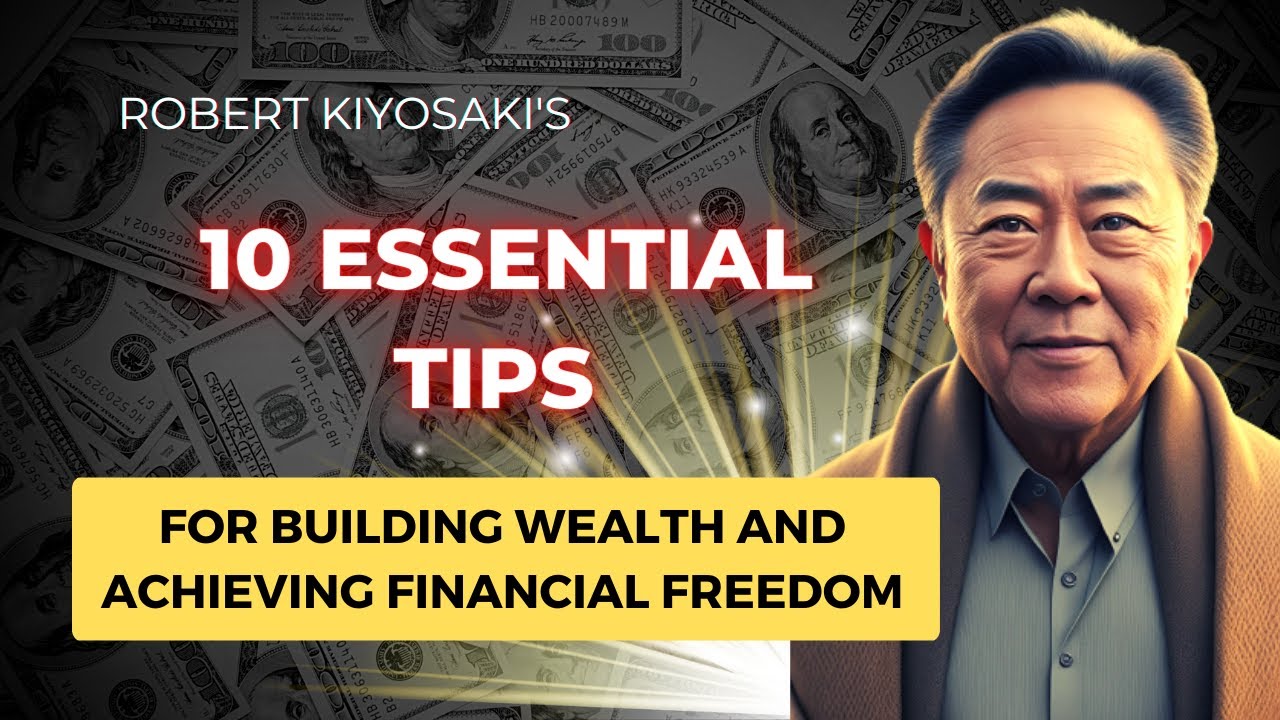
The Millionaire Mindset: Secrets to Building Wealth with Robert Kiyosaki
Jason 0 Comments Retire Wealthy
[Music] thank you welcome back to our Channel where we Empower you to build wealth and Achieve Financial Freedom today we have a special treat for you as we delve into the wisdom of one of the most renowned Financial Experts of our time Robert Kiyosaki in this video we'll be sharing his 10 essential tips for Building Wealth and attaining Financial Freedom so grab a pen and paper because you won't want to miss these valuable insights tip number one focus on cash flow according to Robert Kiyosaki the key to Financial Freedom lies in generating positive cash flow instead of solely relying on a paycheck aim to build assets that generate income and increase your cash flow over time tip number two Embrace Financial education Kiyosaki emphasizes the importance of continuously educating yourself about money and investing by expanding your financial knowledge you'll be able to make more informed decisions and seize opportunities that others may miss tip number three leverage other people's time and money Robert Kiyosaki suggests using the power of Leverage to accelerate your wealth building Journey this can involve partnering with others utilizing loans or investing in assets that have the potential for exponential growth tip number four build multiple streams of income diversifying your income sources is a crucial step towards achieving Financial Freedom Kiyosaki advises creating multiple streams of income to increase your financial stability and protect yourself from relying solely on One Source tip number five be Fearless in taking risks while caution is important Kiyosaki encourages individuals to embrace calculated risks Building Wealth often involves stepping out of your comfort zone and seizing opportunities that others might shy away from tip number six Master the art of negotiation negotiation skills play a vital role in Building Wealth according to Robert Kiyosaki learning how to negotiate effectively can help you secure better deals increase your income and save money in various aspects of your financial life number seven develop a long-term mindset Building Wealth is a marathon not a Sprint Kiyosaki emphasizes the importance of having a long-term perspective when it comes to investing in building assets patience and persistence are key in achieving lasting financial success tip number eight surround yourself with like-minded individuals your network can greatly influence your financial Journey Kiyosaki advises surrounding yourself with individuals who share similar goals and ambitions this can provide support accountability and valuable opportunities for collaboration tip number nine continuously evaluate and adjust to Achieve Financial Freedom Kiyosaki emphasizes the importance of regularly reviewing your financial situation and making necessary adjustments this involves analyzing your Investments tracking your progress and adapting your strategies accordingly tip number 10 give back and share your wealth lastly Kiyosaki encourages individuals to give back and make a positive impact on the world as you build wealth and Achieve Financial Freedom remember to share your knowledge resources and contribute to causes that align with your values there you have it Robert kiyosaki's 10 essential tips for Building Wealth and achieving Financial Freedom now it's time for you to take action and Implement these strategies in your own life remember Building Wealth is a journey that requires commitment learning and adaptability if you found this video helpful be sure to give it a thumbs up and subscribe to our channel for more valuable insights on personal finance and wealth creation and don't forget to hit the notification Bell so you never miss an update we'd love to hear from you which of these tips resonates with you the most have you already started implementing any of these strategies share your thoughts and experiences in the comments section below let's engage and learn from each other's Journeys as always thank you for watching remember wealth and Financial Freedom are within your reach stay focused stay motivated and keep working towards your goals until next time

As found on YouTubeRead More

3 Retirement Savings Tips Before Year-End (Full Webinar)
Jason 0 Comments Retire Wealthy Retirement Planning Tips for Retiree's
Welcome, everyone, thank you for joining us today. My name is Ewelina Caplap, Wealth Management operations manager at Coastal Credit Union, where we bank better to live better. Today, we will be sharing with you three retirement savings tips before year end. So hopefully today you will come out of this session with some great action items. Joining me today are David Burk, CFS financial advisor, and Drew Snider, CFP, director of financial planning here at Coastal Credit Union. Welcome to you both.
So before we get into our exciting conversation, we will very quickly cover our disclosure slide. Coastal Credit Union contracts with CUSO Financial Services to offer investment products to its members, which can fluctuate with market activity and potentially have some risk. So getting into our exciting conversation today about three retirement savings tips for year end. At this time, let's talk about tip one. Tip one, Roth IRAs. We hear about Roth IRAs quite a lot and the potential tax free income they provide. David, why don't you start us off with a little bit about what this tip is? Thanks, Ewelina.
A Roth IRA is an IRA that you're actually using after-tax dollars to invest in a credit union or an investment Roth IRA and letting that grow tax deferred so that after age 59 and a half, you'll be able to withdraw money out of that account that is 100 percent tax free. That's a huge financial and tax benefit that you should certainly consider before year end. Why don't you add a little bit more to that, Drew? Yeah, the Roth IRA is is definitely the greatest savings tool we have for retirement.
As the illustration shows, the seed for our tree is what's getting taxed. And then you grow this beautiful tree with all this great money on it and you get to take the money off and you don't pay taxes on the money. So it's fantastic and everyone should consider if they can do it or not. The beauty of looking at a Roth IRA going into December is you have a vision of what your income is for the year and you have limitations on contributions based on what your income was for twenty twenty one.
So if your income is basically under about one hundred twenty five thousand dollars as a single person or one hundred ninety eight thousand dollars as joint filers, you should definitely be looking at a Roth IRA and coming into the credit union and talking to us to see if it'll work for you. That's excellent. What a great first tip to consider taking care of before the year end. So we're now going to move over to tip number two, and we're going to talk about some 401(k)s. What can you tell us here, David? 401(k)s are offered typically through an employer or as an employer sponsored retirement plan.
They've been around for quite some time now, and many employees should be taking full advantage of this retirement savings. And again, since we're now getting towards the end of the year, it's always a benefit to evaluate your income at this year, like Drew mentioned in the previous slide. But then also what your income will be next year and give yourself a savings raise of trying to increase your savings. Drew, I'll let you expand more about the comparison of Nick versus Maria and what their savings has done over time. Sure, I'd be happy to. This is a very simple graphic of two individuals who make the same amount of money and started off saving the same amount of money, the same percentage to their 401k plan. Nick maintained that savings rate, whereas Maria, each year, increased her savings rate by one percent or her contribution rate by one percent to her 401k plan until it maxed out at 15 percent.
And you can see that over time, Maria had quite a bit more money. This is after 30 years. She had twice as much money for retirement as did Nick. And you know what? You don't really need to concentrate on anything other than the fact that that right bar looks a lot bigger than the left bar. So with proper planning, we can help our viewers get there. Yeah, just one more comment here.

Before year end, everyone should take a look at their 401k statement and see if they maximized. If they're trying to maximize the amount that they can contribute, they should take a look at that and see if they've been able to do that this year, because a lot of people may think that they are maximizing their contributions when in fact they haven't. Right? Good point. And another thing, I'm not sure if we mentioned it, if you have a Roth 401k option on your plan, if we're talking about a Roth IRAs, certainly Roth 401k option is something that our viewers should be looking into. Can either one of you speak to that for a minute? Yeah, that's an interesting comment, Ewelina, because that's still relatively new in the marketplace and offered through employer 401k plans, but the numbers are astounding how few people are really taking full advantage of that Roth opportunity in their 401k.
And what that means is, you can actually contribute more towards your Roth 401k than you can a Roth IRA outside of your employer-sponsored plan. Plus, your income is not a restrictive factor in being able to contribute to the Roth 401K plan. And just add to that, I would encourage anybody, even high income people who really do like the tax deduction that they're getting from their traditional 401k contributions. It's not an either/or situation. You know, if you're not doing either traditional or Roth, you can do some in both. Personally, I do some in both of mine. I do some in the traditional and I do some in the Roth in my contributions.
I do the same thing on my own planning as well. Well, certainly a lot to take in and consider for year end. So we're going to move on to our final tip. Tip three. Health savings accounts, right? HSAs. And who doesn't like the sound of triple tax savings? So, David, what don't you tell us a little bit about that first? The triple tax saving on a health savings account is phenomenal, and many people have completely overlooked this opportunity for their own household and and being able to save tax free money.
So what ends up happening. If your employer offers you a high deductible health account, then you can participate in an HSA. And what you're able to do is contribute on an individual basis or as a family, and that money can be tax deductible as far as the contribution. Once that money is in your HSA, it grows tax deferred. And then when you're ready to start withdrawing money from an HSA for a qualifying medical or health care expense, it's one hundred percent tax free as a distribution. And I want to comment here. As as you come to the year end, some employers are going to contribute some money to your HSA for you. You can add the rest up to the maximum. And you have until April 15th to do that. But the year end is a great time to take a look to see how much your employer has put into that plan for you. And then what is the calculation? What's the amount that you can add to it? Because you can reduce your taxes in your 2021 tax return, you get tax deferral and you can take the money out tax free for qualified health care expenses.
Excellent. So it sounds like there's a lot to get done here working with Team Coastal. So who are we right? Who is Team Coastal? Drew, can you talk to us about how we can help our viewers in meeting these three tips? Putting them into action? Yeah. Whether you're talking to Coastal Wealth Management about these concepts that we talked about today, or if you go into the branch, the credit union, you're going to get a team of experienced people that are going to be able to help you make your contributions, maximize your retirement. At Coastal, they're going to talk to you about your savings account options and Wealth Management. If you have a more longer term perspective, we're going to show you some investment options for your IRAs. And then, you know, one thing about Coastal Wealth Management is, you know, we have lots of options to help you to find a great solution that you're comfortable with.
That fits your risk tolerance and your needs, and we're all working together. So whether you talk to someone at the branch and you tell them, Hey, I'd like to get a better rate of return, than you're offering in that savings account, they're going to bring us into the conversation with Wealth Management so we can talk to you about how we can help. So we're all working together at Team Coastal. And then obviously, if you want to do a financial plan with us, we'd be happy to help you with that. Absolutely. And speaking of that financial plan, for our viewers, if they are not aware, it is a complimentary financial review to meet with our team and discover all the options available to you with Team Coastal, whether that be something that our retail team can help you or our Wealth Management department specifically, we all work together and can hopefully help you reach your goals. Schedule your complimentary Financial Review with us today. You can call us at 919-882-6655. You can certainly send us an email [email protected]. And of course, you can find us online as well.
There are some action items to take here with these three tips before year end. We're happy to help you with that. Thank you again… David Burke, CFS financial advisor, one of our dedicated advisors for being with me here today, and of course, Drew Snider, our financial planning director here at Coastal Credit Union. Thank you for your time today and thank you to our viewers for joining us. And reach out to us. We'll be happy to help you..
As found on YouTubeRead More
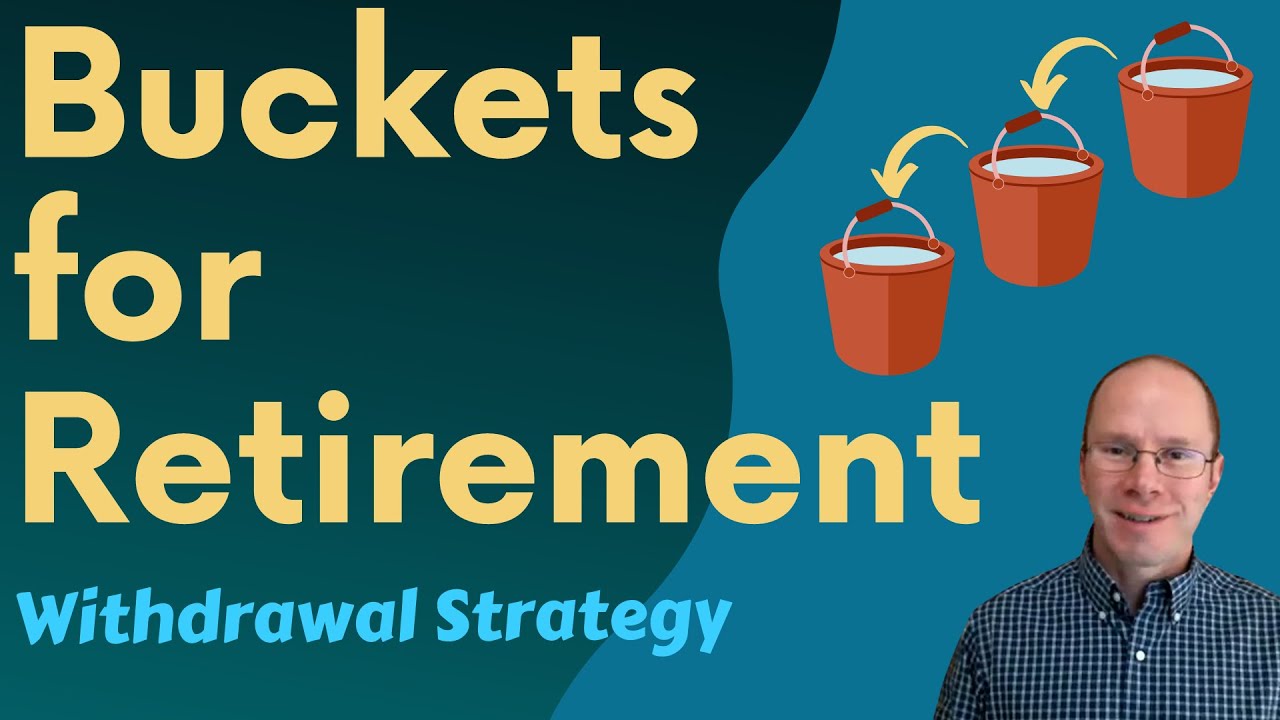
Is a Retirement Bucket Strategy Right for You?
Jason 0 Comments Retire Wealthy Retirement Planning Tips for Retiree's
Making your money last in retirement can be tricky, so it's worth asking if a bucketing strategy might help you address some of the biggest challenges you face. So in particular, we're talking about number one having the confidence to stop working and start spending. That can be terrifying even for those of you who are well prepared. You might have assets and a healthy income from social security and pensions, but still it's kind of terrifying to walk away from a job with a steady income and some nice health care. You might also need to invest at least some portion of your assets for long term growth, and that's because we all face the risk of inflation or rising prices over time.
So if your assets aren't growing then you may lose purchasing power over decades in retirement, and that can be a problem. Then a third issue is of course that sequence of returns risk, and this is when you are selling assets especially at the beginning of your retirement when markets are down, if there happens to be a crash at the beginning of your retirement years, if you're selling assets during that event it can really take a bigger bite out of your portfolio and increase the risk of you running out of money later in life, and we don't want that. So let's spend the next couple of minutes talking about retirement bucket strategies. We'll go over some examples, maybe look at how to start it and manage it over time, and then discuss if it's the right move for you. I will mention that I don't see a lot of clients using this beyond a two bucket approach, but it's still nice to know these concepts so that you can either rule it out if you're not going to use it or get some good ideas. Bucketing is also known as time segmentation.
In other words, you have different buckets of assets that you can pull from over different time frames, and the promise of this is that hopefully you would be able to avoid selling assets when they're down and you can be confident that you have the funds you need for your withdrawals and your spending. So you always have a cash bucket and this involves money that you might be spending next week or next month.
This is relatively safe money, and then beyond that you might have one or more additional buckets that are invested a bit differently, and we'll talk about that in just a minute. It's important for you to know that you can customize this in any way you want. We're just going to go over some examples that are concepts, but whether you use two buckets or three buckets or make the time frames different, maybe you want four years worth of cash for example, these are all things that you can customize to suit your preferences. One of the simplest approaches is a two bucket strategy.
So you've got just that one bucket for several years worth of spending. You might set aside enough cash to satisfy let's say one to three years worth of withdrawals if you needed to take money out of investments and you didn't want to sell investments because they're down perhaps. The second bucket is maybe a total return portfolio. It might be invested according to whatever is right for your risk preferences, your needs, and your tolerance, and you would know that given that you have some cash set aside you don't need to dip into that bucket for at least four years or so. Now keep in mind that this isn't rigid so you don't need to necessarily start by spending from your cash bucket.

If the markets are doing well and your investments are gaining value it might make sense just to spend from those investments and leave that cash bucket as is and it's there for if you ever need it. So if there is ever a market crash it is already loaded with cash that you can draw on and you can worry a lot less about what the markets are doing. So you can see some of the investments in bucket number one. These are cash equivalents basically it might even be in a savings account or CDs. You could look at T bills if you wanted and other types of things. Again this is up to you but the point is you might feel really confident if you have this money set aside. And by the way it's probably a good idea to start building up this cash bucket a few years before retirement so that once you reach day one of retirement you have this money set aside already. In the second bucket of course you have a diversified portfolio so that might be mutual funds and ETFs, maybe some individual stocks and bonds, whatever it is that you invest in according to whatever is appropriate for you as an investor.
So if that's a 60 40 for example you do that maybe you have more risk or less risk or alternatives or something else. We'll look at some deeper examples next but first I want to mention I'm Justin Pritchard and I help people plan for retirement and invest for the future, and in the description below you're going to find more information on bucketing, some resources from Christine Benz, as well as just some general retirement planning resources and information. I think you will find all of that really helpful so please check that out. And by the way it's just a friendly reminder that this is just a short video it can't possibly cover everything. You can still run out of money even if you use a bucketing strategy so triple check all of this with some professionals and be aware that there is always some risk and uncertainty in the retirement planning world. Now moving on to a three bucket example we have those same two buckets as before but we've added an income bucket so this is in between the cash withdrawal bucket and the longer term growth bucket.
You might prefer to set aside an extra bucket. I'm not sure that you necessarily need this bucket but you could include things that kick off higher levels of income perhaps longer term bonds and CDs maybe some dividend stocks if you have the appetite for that kind of risk and anything else that comes to mind that might help create some income that can go into bucket number one. If we look at this three bucket example depending on how you set it up you might have roughly or almost 10 years worth of withdrawals in relatively safe assets.
You've got a couple of years in cash so that's going to be really safe and then the income is a little bit more risk but not quite everything in the stock market like your growth bucket you could potentially pull from those assets for up to 10 years before you need to go and sell from your growth bucket and of course the past doesn't necessarily repeat, there are no guarantees but if we look historically there's a decent chance that you wouldn't be selling at least at steep losses and you might not be selling at any losses if you have a diversified portfolio over a rolling 10 year period, again can't predict the future, then if you really wanted to you could add more buckets but that really gets complicated, and speaking of complicated, let's get into bucket maintenance or bucket management.
This is really where you start to see some cracks in getting too complicated with this strategy or using too many buckets it's easy enough to design a bucket strategy in theory so you can set up the amounts you want and figure out how many years they should last and on your retirement date and in the early months you will have a lovely set of buckets, you've got the exact amount in each one and the investment mix in each one is exactly what you want, but at some point, life might happen, if you get into an extended downturn or even a flat market or if you have huge expenses that you didn't expect at some point we need to figure out how exactly you're going to be moving assets from one bucket to the next again when things are going well you're typically going to maybe just sell from those investment assets and not even use bucket number one the safe money you might just take profits off the top of whatever your growth investments are doing during the good times and meanwhile you might be sending income let's say dividends or capital gains payments over from the income and growth buckets into bucket number one and that can help to build that up or replenish it from any withdrawals that you might have taken but if you really start drawing from bucket one that safe bucket how exactly do we decide when and how to put money back in well one way is to use a systematic approach and that might be one example is going to be just every time period whether it's every six months every year you take some money out of the subsequent buckets and pull it forward into your cash bucket that can kind of defeat the purpose of bucketing because the idea is that you don't want to do things systematically you want to be more opportunistic and not just sell every six months but you want to avoid selling when investments are down to make a slight improvement on that you could look at a rebalancing strategy so you just take profits off the top of whatever did well and sell those assets and put the proceeds into bucket number one so if stocks did really well you're taking money out of stocks putting it into cash if bonds did really well and stocks suffered you would sell some bonds to get back into balance and then move that money over into the cash bucket you could also look at more opportunistic approaches and these border on market timing but you might say that maybe you have some rules you could say if something rises by more than five percent during a quarter or during a month for example you're going to sell some of that get it back down to a smaller proportion and take the sales proceeds put that into cash your bucket maintenance gets really complicated at some point especially if the markets don't behave so I would say you want to do a lot more thinking ahead and a lot more research if this is something you're considering look at some of the discussions with Christine Benz from Morningstar there are a number of those here on YouTube and she talks about that in more detail and proposes maybe some simplified ways of going about this which might take us right back to the two bucket approach really quickly how do you set this up in the first place well one way to do it is to use different accounts so your cash bucket is in cash and that might be in savings accounts CDs banks credit unions or even a conservative brokerage account then you might have your other buckets in different accounts and that way you can keep a balance of whatever the assets are in that account you can rebalance that account and the cash bucket is unaffected so it might make sense to do that but if you prefer you could do all of this in one account so for example you could have a couple of years worth of withdrawals sitting in cash or in a money market fund in a brokerage account then the subsequent money or the rest of the buckets would be in other investments inside of that same account ultimately this comes down to your preferences and what's going to be easiest for you to keep track of because that's really important you have to manage this over time it isn't just setting it up once and then letting it run you really do need to keep paying attention to it so I've hinted at some of the potential challenges here and I'm going to propose what I think is a simpler way of doing that and explain exactly why I think that but again it can be hard to manage this over time you don't always know what the next step is and so you might be kind of figuring things out and winging it as you go and that kind of defeats the purpose of setting up a structured process at the beginning if you aren't really sure what you're going to do with it as the years pass this can also be a cash heavy approach so you might have several years worth of withdrawals sitting in cash and that's not necessarily a bad idea but for some people given how everything is set up that can potentially mean that they don't have much that is invested for longer term growth so you want to think about that as you explore all of this and of course there are no guarantees so there could be extended draw downs that cause you to wipe out one bucket then the next and then get right into those growth assets selling exactly when you don't want to sell you can still have problems with this approach so what are some decent alternatives to bucketing you're obviously looking for a solution that can provide some peace of mind and give you a reasonable path forward as you figure out how to spend down the assets that you have one solution might be total return investing and that's where you just have a diversified portfolio that is tailored to your needs it has the right risk level and then a cash reserve so basically we're just talking about two buckets here if you want to look at it that way you've got a couple of years let's say worth of money in cash that can satisfy withdrawals during market downturns and the rest of it is invested I think you'll find that this functions similarly to what everybody thinks about as a bucket strategy so what you're doing with that approach is you want to keep the portfolio in balance so a couple of options number one is you can just sell what's been doing well and generate cash that's kind of like what we were talking about with bucketing or you might keep the portfolio in balance every six months for example or when it gets out of different tolerance ranges you might get it back into balance but effectively you're still selling your winners there and then putting it into the portfolio balance and then whenever you want to add cash you would just sell everything proportionally but you have been previously selling your winners to keep the portfolio in balance it's not exactly the same as a three bucket strategy for example but it can function somewhat similarly and another approach is to look at guardrails this is different than bucketing and looking at what to sell and when but it might be a different way to figure out exactly how much you can spend and avoid running out of money during retirement that's a topic for another video but it's something to look into if you're exploring these ideas so I hope you found this helpful if you did please leave a quick thumbs up thank you and take care.
As found on YouTubeRead More
